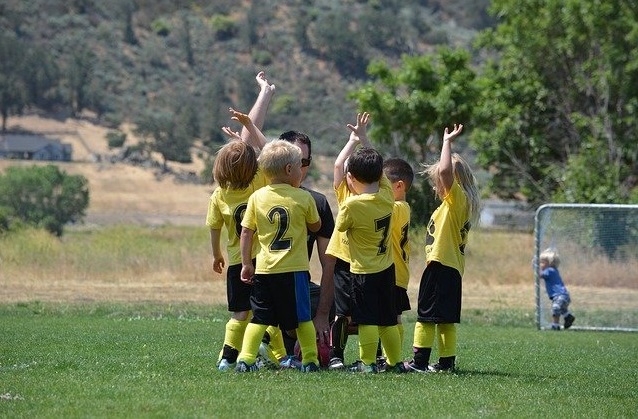Physical activity is a crucial part of healthy development. It’s also a natural part of play, so most kids are active without engaging in structured training. However, participating in a specific sport (led by a coach) can bring a lot of benefits.
Organized athletic activities can improve their coordination, strength, stamina, and overall health. Mental health benefits include improved self-esteem, reduced stress levels, and building discipline and strategic thinking. As for the social perks, you have sportsmanship, leadership, and building friendships.
Of course, you can’t just “throw” a kid into sports without knowing whether they are physically and mentally ready. Here are some tips that will help you find the right time.
Get to Know Basic Developmental Stages
Not all children develop at the same rate, and not all of them share an interest in a specific sport. However, it’s important to know the different developmental stages that can be a factor in making the right decisions.
Here, we’ll point out three basic stages when parents still have a role in choosing an activity for their kids:
Early childhood (ages 2 to 5)
At this age, children have poor balance and limited skills. They also have short attention spans, so it’s often more difficult for them to carry out complex instructions or follow rules. Because of that, it’s best to have them engage in fun activities that don’t have extensive rules. Swimming, running, and just playing ball are some great options.
Middle childhood (ages 6 to 9)
This is a time when their coordination improves, their balance becomes automatic, and they can participate in team activities. Besides activities like running and swimming, they can also practice entry-level baseball, tennis, gymnastics, martial arts, and soccer.
Early adolescence (ages 10 to 13)
At first glance, this might seem like an ideal time for complex-skill sports. However, keep in mind that this is a time when their bodies start going through extensive and confusing changes. For example, a growth spurt might mean a temporary decline in balance skills. They can still compete in entry-level complex sports, such as hockey, basketball, volleyball, and baseball. The American Academy of Pediatrics recommends starting football at the age of 14 or later.
Ask Them If They Are Ready
Some children might not be ready to start practicing sports even if they are physically and cognitively capable. Remember that kids are small humans. They have their own dreams, desires, interests, fears, and doubts. Ask them whether they are ready to participate in an athletic activity. You will see by their reaction whether they are excited, happy, confused, or afraid.
If they are not ready, don’t push them. Instead, try to get them excited about the idea of doing sports and help them gradually ease into it. Here are some tips on how to achieve this:
- Lead by example – be physically active, go to the gym, jog regularly, and talk about how that is important and fun for you.
- Watch sports on TV or go to sports events together.
- Watch child-appropriate sports movies.
- If you see they are interested in a particular activity, nurture their interest and make it logistically possible for them to pursue it.
- Do sports together. Doing sports for fun as a family helps kids get comfortable with the idea so that joining a team later doesn’t seem so daunting. For example, if baseball is the activity of your choice, get some basic baseball training aids for backyard practice, and when they get enough confidence, they can try joining a team.
- Allow them to be a part of the decision.
- Be patient.
Prioritize Your Child’s Safety and Wellbeing
Naturally, any kind of physical training has to be physically safe for a child. On top of that, it should also encourage fair play, promote camaraderie, and endorse skill development. Skill development is particularly important in early childhood, but emotional development plays an important role throughout the entire life.
These are some questions to ask about a sport before making the final decision:
- Does the coach follow all the safety requirements?
- Do the kids have all the necessary safety equipment?
- Are the conditions in the training facility good?
- How do they handle differences in skills?
- How is playing time determined?
- How do they approach competition?
- Do the kids get along?
Where to Begin?
Now that you’ve considered all the important factors, let’s consider some universal “rules” regarding which sport is best for beginners. In the ideal situation, athletics would be the first sport children should get into because it helps them:
- develop speed and agility
- improve balance and coordination
- learn running techniques
This is basically everything they need before they move on to another sport. Of course, if your child opts for another sport, you need to make sure the coaches are willing to help them develop basic skills in the beginning.
Finally, regardless of all these things, your child’s wishes, interests, and personality will determine which sport they’ll do and when. Your role here is to provide guidance and support. Sometimes, you might need to give a tiny push – but don’t push them too far. Don’t expect them to become star athletes (even though that is a possibility). The important thing is that they are growing healthy and having fun.

